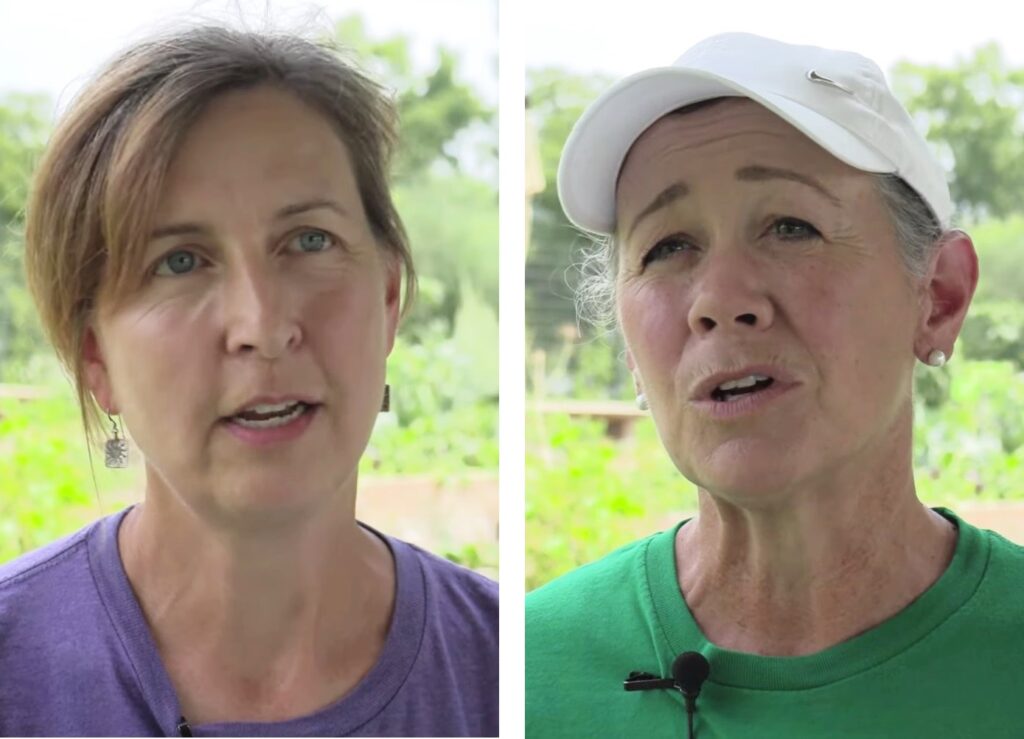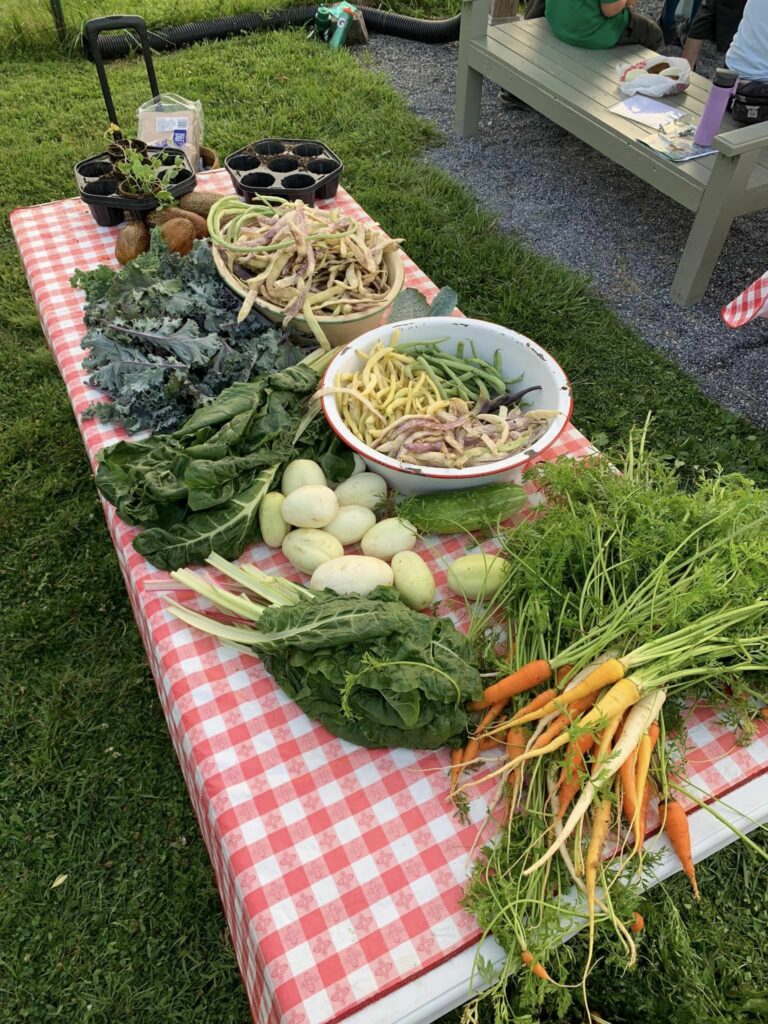(Editor’s Note: This article is part of One United Lancaster’s series on United Way of Lancaster County’s 2023-24 Level Up & Launch grant recipients.)
Many children are picky eaters at the dinner table but fearless snackers in the garden, says Beth Horst.
Children enjoy playing in the dirt — one of the many reasons that gardens are an effective teaching tool. The programs developed by Edible Classroom encourage the involvement of children and their families in every step of growing food, from seed to table.

There are currently 12 gardens operating under the stewardship of The Edible Classroom, co-founded by Horst and Grace Julian. The nonprofit is using a $25,000 Level Up & Launch grant from United Way of Lancaster County to expand growing space and programming at two of them to create community gardens.
The two sites are Hamilton Elementary School in the School District of Lancaster and the Columbia Borough School District’s High/Middle School Hill Campus.
The gardens will continue to be school-based: Students will tend them, and will produce healthy food for the surrounding community. Horst and Julian envision them becoming public assets and bases for community outreach: green spaces where neighbors can learn about and enjoy nature’s bounty.
Plans call for recruiting a volunteer coordinator and bringing on high school interns to assist with activities and mentor their younger peers. The funding will allow for the interns to be paid stipends.
School gardens have a rich history in the United States. In 1906, the U.S. Department of Agriculture estimated that 75,000 schools had gardens. Education pioneers like Maria Montessori and John Dewey touted their benefits.
Advocates of the contemporary school garden movement say the programs enrich children’s educational experience and raise awareness of global social and ecological issues.
Climate change and the health effects of processed foods are pressing concerns for those now coming of age. Moreover, while STEM education generally brings to mind applied physics or programs like Girls Who Code, school gardens offer endless possibilities for lessons in applied science: What makes plants grow? What makes for good, healthy soil? What are pollinators? How do you keep pests away?
The Edible Classroom’s lesson plans are developed in concert with existing curriculums to fit state standards. Lessons and days in the garden follow the passage of the seasons: Planting in the spring and harvesting in the fall, with educational materials tailored to the gardening process at any given time.
During the winter session, a lot of the focus is on cooking, with students learning about nutrition and making fresh after-school snacks for themselves. Over the summer break, the Edible Classroom offers day camp programming at nine of its 12 gardens.
As Lancaster County’s demographics continue to diversify, Julian and Horst try to make their gardens inclusive.

“You’ll see here at Hamilton Elementary we have English and Spanish plant labels,” Julian said. “We intentionally grow crops from around the world.
“We’re growing Tatume squash this year, from Central America. We’ve grown Manpukuji carrots from Japan. Hopefully, seeing something familiar in the garden will break down the barriers for kids who aren’t from Lancaster County. Give them a taste of home.”
In 2022 almost 2,000 pounds of produce were harvested from Edible Classroom’s gardens. Most of the excess produce goes home with students. Sometimes the food makes its way to food banks or other charitable partners.
Julian and Horst envision the produce going to the schools’ cafeterias one day. Compost practices could be adopted by those same cafeterias, creating more opportunities for lessons as well as fertilizer for the gardens.
Hamilton Elementary and Columbia’s Hill Campus gardens have been up and running long enough for them to be part of some students’ whole elementary school experience.
Just as there is something to learn about plants at every stage of their life cycle, Julian and Horst hope to nurture students, graduates and adults who will continue to tend the community gardens and the community itself throughout their lives.






